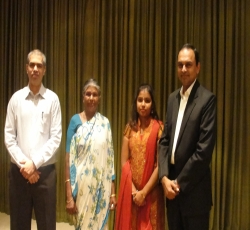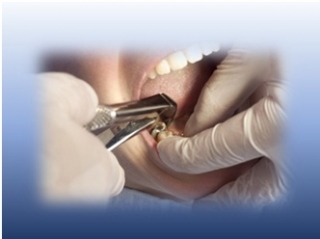Kidneydonation: Women lead the way

World Kidney Day,celebrated on the second Thursday of March every year, is a joint initiative ofthe International Society of Nephrology (ISN) and the International Federationof Kidney Foundations (IFKF).
Each year, the eventfocuses on a specific theme related to this amazing organ. This year’stheme ‘Donate — Kidneys for Life — Receive’turns the spotlight on kidney donation, underlining the fact that whiletransplant is the best option to treat renal failure, living donor transplant is much better than a deceased donor transplant.
Incidentally, thisyear World Kidney Day falls on March 8, coinciding with International Women’sDay. A very apt coincidence: for, ithighlights the fact that in India,most voluntary living kidney donors are women.
For Nature’sLife-Giver, Woman, the decision to donate a kidney to a loved one seems to beone taken with effortless ease. In fact,in most cases the woman donor readily volunteers even before being assured bymedical experts that kidney donation will not affect her health in any way andthat people with one kidney are at no greater risk of kidney or other healthproblems than anyone else in the general population.
Living donor kidneytransplants are preferred over deceased donor kidney transplants as they havefewer complications and last longer (an average of 18 years vs an average of 12years). With the kidney being removed through laparoscopy, there is minimalscarring, less pain after surgery, and a faster recovery for the donor. The donor is able to leave the hospital threeto four days after the surgery. Subsequently, no change in lifestyle or diet isrequired.
(Incidentally, altruistic kidney donation from livingdonors, in which as an act of compassion a kidney is donated to a completestranger with a correct physiological match, is a rising trend abroad.)
Whyyour kidneys are important
The kidneys process roughly a litre of blood per minute, acting as intelligentfilters and cleaning out toxins and wastes. They maintain body fluid volume andcomposition, and secrete hormones which help in the production of red bloodcells. They play a vital role in regulating blood pressure and balancingelectrolytes which maintain the heart’s rhythm. If the kidneys stop functioningnormally, wastes accumulate in the body, leading to Chronic Kidney Disease(CKD). People with late-stage kidney disease need dialysis or transplantation.
CKD is rampant inurbanized societies where unhealthy eating habits, obesity and a sedentary lifestylehave become the norm, and the number of people needing transplant is growing atan alarming rate.

Rajamma, 60, is adoughty, semi-literate, down-to-earth grandmother. When her granddaughter Navya, 20, was diagnosed with renalfailure roughly a year back and advised a renal transplant, Rajamma immediately volunteered to donate a kidney. Therewas no hesitation or apprehension; just a practical question: “How soon can itbe done?” Rajamma underwent themandatory tests and was found medically fit to donate. Navya, who is doing herfinal year BBM underwent a kidney transplant on Dec 21, 2011 at NarayanaHrudayalaya, and is doing well, cramming for her final year exams. Rajamma hasproved that if one is medically fit, age is no bar for donation.





















